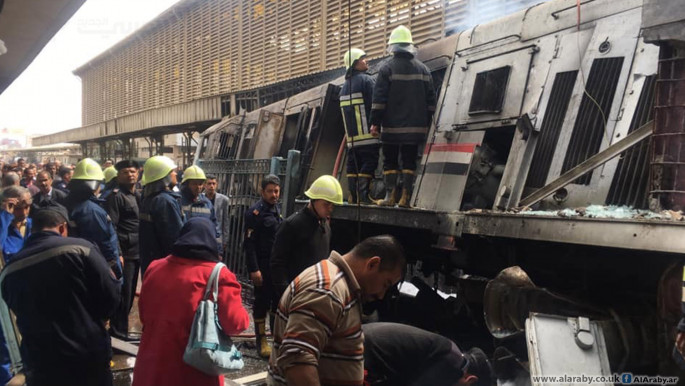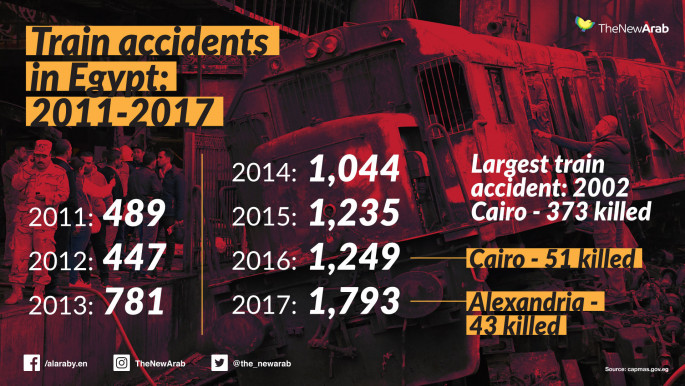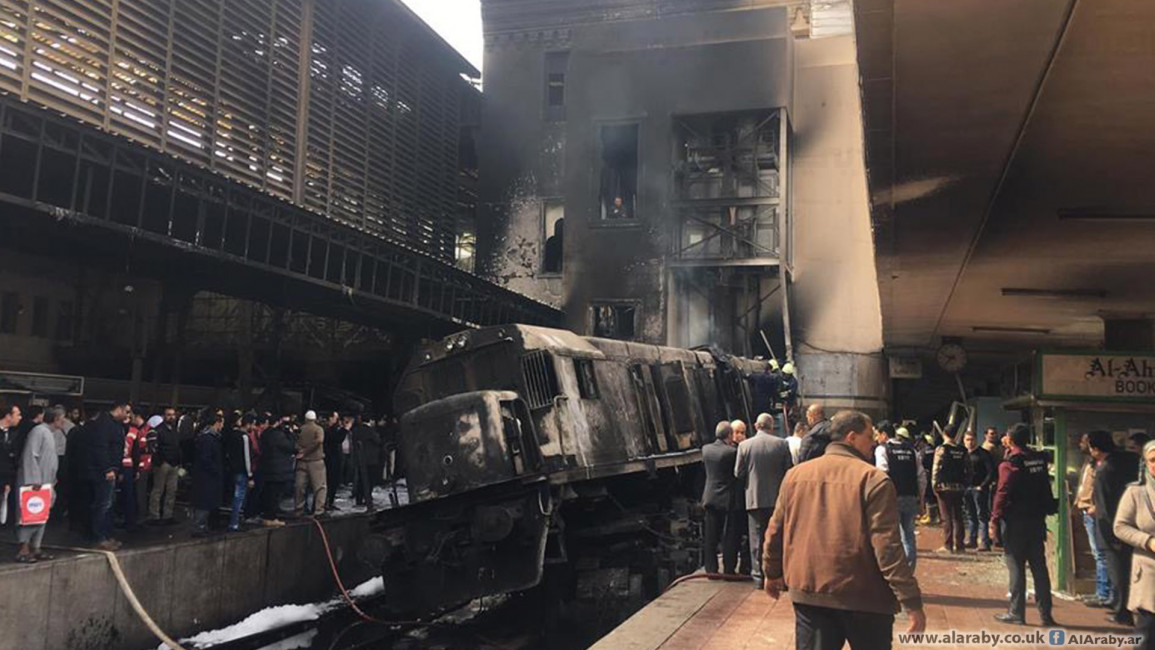'Sisi's corruption and negligence' blamed for devastating Egypt train crash
Rampant corruption and President Abd al-Fattah al-Sisi's refusal to invest in public safety have been blamed for a devastating train crash on Wednesday which killed at least 25 people.
The crash triggered a blaze which engulfed Cairo's main train station on Wednesday morning when a train collided with a buffer stop at the end of a busy platform, causing its fuel tank to explode. Egyptian officials have not provided a reason for the crash.
"Any person found to be negligent will be held accountable and it will be severe," said Egypt's Prime Minister Mustafa Madbouli during a visit to the station.
Transport Minister Hisham Arafat submitted his resignation just hours after the deadly crash, apparently taking responsibility for the lives lost under his watch.
But many Egyptians instead pointed to Sisi's reticence over improving the country's railway networks, rampant government corruption and a sheer lack of care for Egyptian lives.
"Is my fate to die [on the tracks]? It happens all the time ... what do the authorities do?" pleaded an eyewitness to the AFP.
Train accidents are not uncommon in Egypt by any means, and Egyptians have long complained that the government has failed to maintain the country’s heaving transport links railways and roads.
There were 1,793 train accidents in 2017, according to Egypt’s official statistics agency. Rail accidents have dramatically increased in Egypt since 2011, when 489 occurred.
The railway authority's budget increased from 11.4 billion to 20.6 billion Egyptian pounds (from $650 million to $1.2 billion) between 2011 and 2016.
Egypt was also the recipient of a €290 million ($330 million) loan from the European Bank for Reconstruction and Development to help support the country’s railway network.
A 2016 crash in Cairo killed 51 people, and a 2018 derailment in Aswan prompted the firing of the chief of the country’s railways. Egypt’s most catastrophic train accident was in 2002, when 373 people died on the Cairo-Luxor line.
|
|
President Abd al-Fattah el-Sisi in 2018 claimed Egypt lacks the approximately 250 billion Egyptian pounds ($14.1 billion) necessary to overhaul the run-down rail system. The statement came a day after a passenger train collided with a cargo train, killing at least 12 people.
The year before, Sisi questioned why Egypt should invest billions of pounds in improving its railways if it could instead put the money in a bank and earn a billion more in interest.
His comments prompted widespread outrage at the time and have since reemerged as Egyptians question the priorities of the president in the wake of Wednesday's crash.
At least 25 people were killed in Wednesday's crash and more than 50 were wounded, according to official sources. However, initial reports put the death toll as high as 40 and Mohammed Said, head of the Cairo Railroad hospital, said the death toll is likely to rise in the coming hours.
Shocking photos spread on social media just moments after the fire began showed horrific scenes of charred, lifeless bodies strewn across the train tracks and platform of the station.
Egyptian daily al-Masry al-Youm blamed the crash on a fight between the driver and another railway worker, but an official statement is yet to be given.
Agencies contributed to this report.Follow us on Twitter: @The_NewArab



